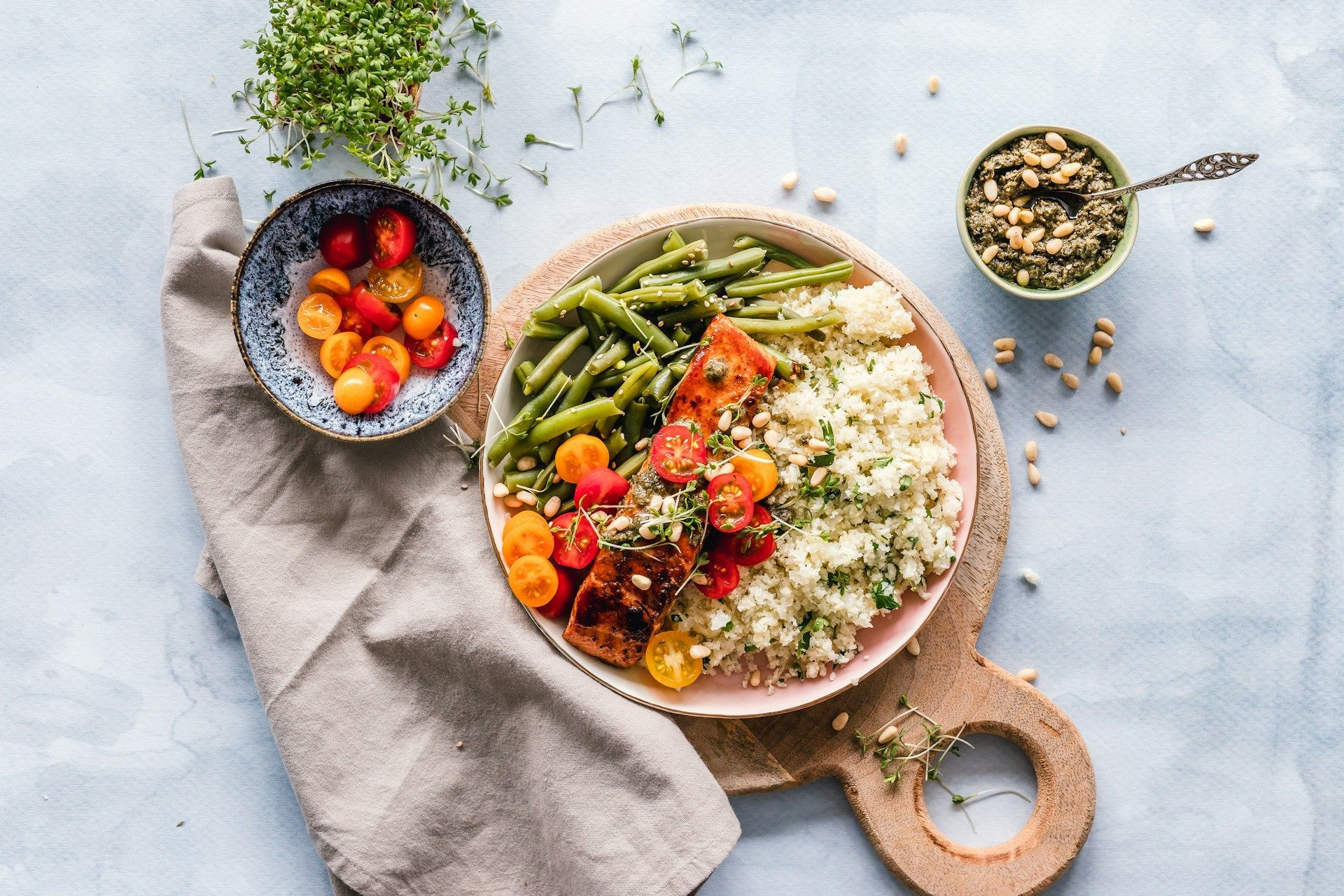Should Yogis Be Vegetarian?
Yoga is much more than a practice to many. It's a way of life, a spiritual discipline, affecting multiple decisions, including what to eat. Many yogis opt to become vegetarian — should you follow suit?
A plant-based diet has multiple advantages. Many people also consider it more ethical, as it is kinder to animals and treads more lightly on the planet.
However, diet is an intensely personal thing, one that involves more than merely staying alive. Food forms an integral part of many family and cultural celebrations and even some Buddhist monks will eat meat offered to them under certain circumstances. Should yogis be vegetarian? The choice is ultimately yours, but here are some things to consider.
Yoga History, Religious Origins and Vegetarianism
Yoga shares ancient historical ties with both Buddhism and Hinduism, faiths that embrace vegetarianism in some respects. Many members of both faiths refrain from eating meat to practice non-violence toward other living things.
Although the Buddha cautioned that the yogi refrain from eating flesh, wandering monks could eat meat offered to them as long as they did not see, hear or suspect the animal was killed for them. For example, it would be acceptable to accept a chicken dinner if the fowl had died of natural causes.
Furthermore, many yogis commit to eating sattvic food for the physical, mental and spiritual health benefits. Sattvic food is a part of the Ayurvedic system and emphasizes fresh fruits, vegetables, nuts, and grains, while avoiding meat, caffeine, refined sugars and overly spicy or processed foods. Although those who practice a sattvic diet may consume dairy, they exclude eggs.
Reasons to Become a Vegetarian Yogi
If you’re on the fence about going vegetarian, here are three reasons to consider switching.
1. Practice Non-Violence Toward All Living Creatures
Yoga creates a reverence for life. Even if you don’t practice Buddhism or Hinduism, choosing to forego meat can be a highly spiritual decision.
The deliberate killing of an animal creates pain and fear and thus, suffering. Many yogis who wouldn’t personally go hunting or fishing choose the vegetarian path, as they recoil at the thought of such violence.
2. Demonstrate Loving-Kindness Toward Planet Earth
Food production contributes to greenhouse gas emissions. According to the 2023 Nature Food study, cutting current meat consumption by half would reduce the food industry’s contribution to a changing climate by a quarter.
Furthermore, cattle farming contributes to deforestation, especially in the Amazon. The earth needs more trees, not fewer. Plus, acreage used for growing cattle feed could just as easily grow nutritious food for humans, reducing world hunger for a fraction of the environmental cost.
3. Enjoy Impressive Health Benefits
Copious scientific evidence supports the health benefits of a plant-based diet. According to the American Heart Association, a diet rich in vegetables and fruits lowers the risk of:
- Heart disease
- Strokes
- Obesity
- High blood pressure
- High cholesterol
- Type 2 diabetes
- Many forms of cancer
The Many Flavors of Vegetarianism
Yogis who choose vegetarianism have several options. Vegans are the most restrictive, eschewing all animal products, including clothing made from silk or leather or animal byproducts like honey.
Lacto-ovo vegetarians eat dairy and eggs but no meat, while pescatarians enjoy fish and seafood. There are also twists --- some people consume dairy but not eggs, for example.
Reasons to Include Meat in Your Diet
That said, not all yogis are vegetarian. Many choose a flexitarian option, cutting back on meat but still consuming it on special occasions. Others find that consuming animal products is the most convenient and cost-effective way for them to manage their health. Here are two reasons to keep an open mind.
1. Practice Acceptance for Individual Differences
Eating meat has been part of the human experience for millions of years, long before they evolved into modern-day homo sapiens sapiens. Some scientists argue that we never would have evolved such large brains had we not snacked on the occasional antelope leg. However, other scientists refute this assertion — the debate rages on.
Whatever evolution may show, many of us grew up eating meat. It’s part of our family celebrations and may play a role in cultural events.
Saying no to a slice of mama’s famous meatloaf when you fly home for a rare college break can feel sacrilegious and lead to hurt feelings.
Saying yes to certain meals can bring you closer with those you love, bask you in pleasant nostalgia and comfort you like a hot bowl of beef stew on a cold, winter’s day.
2. Support Those With Certain Medical Conditions
Everyone’s body reacts differently to various foods. Just as there are some people who are allergic to meat, there are others who could find themselves nutritionally deprived on a purely plant-based diet. It’s not that they’re allergic to every variety of veggie, fruit or nut, but health conditions may limit their options.
For example, people with Crohn’s disease or ulcerative colitis may struggle to absorb certain nutrients. Plants can sometimes contain antinutrients that further inhibit digestion, making it tougher to get the nutrition they need from such sources.
Furthermore, people with anemia, which depletes iron, or pernicious anemia, which makes getting B12 problematic, should talk to their doctors before starting a vegan or vegetarian diet. It’s harder to absorb plant iron than from a meat-based source, and nearly all naturally occurring B-12 comes from animal origin.
Finally, parents should think twice before allowing children to practice a vegan diet, as they need certain nutrients for their growth and development. Those who lack the time or the money to do the homework involved with getting a full array of amino acids should also hesitate, although a lacto-ovo or pescatarian diet may be appropriate.
Should Vegetarianism Be a Part of Your Yoga Practice?
Many yogis extend their practice well beyond the mat. It is a way of life that encompasses every arena, including what they eat. Many yogis choose to be vegetarian, although not all do.
Should you become a vegetarian yogi? Only you can decide for sure. Cutting down on your meat consumption is a good way to practice compassion for animals, yourself and the planet, one that deserves your mindful thought and attention.











